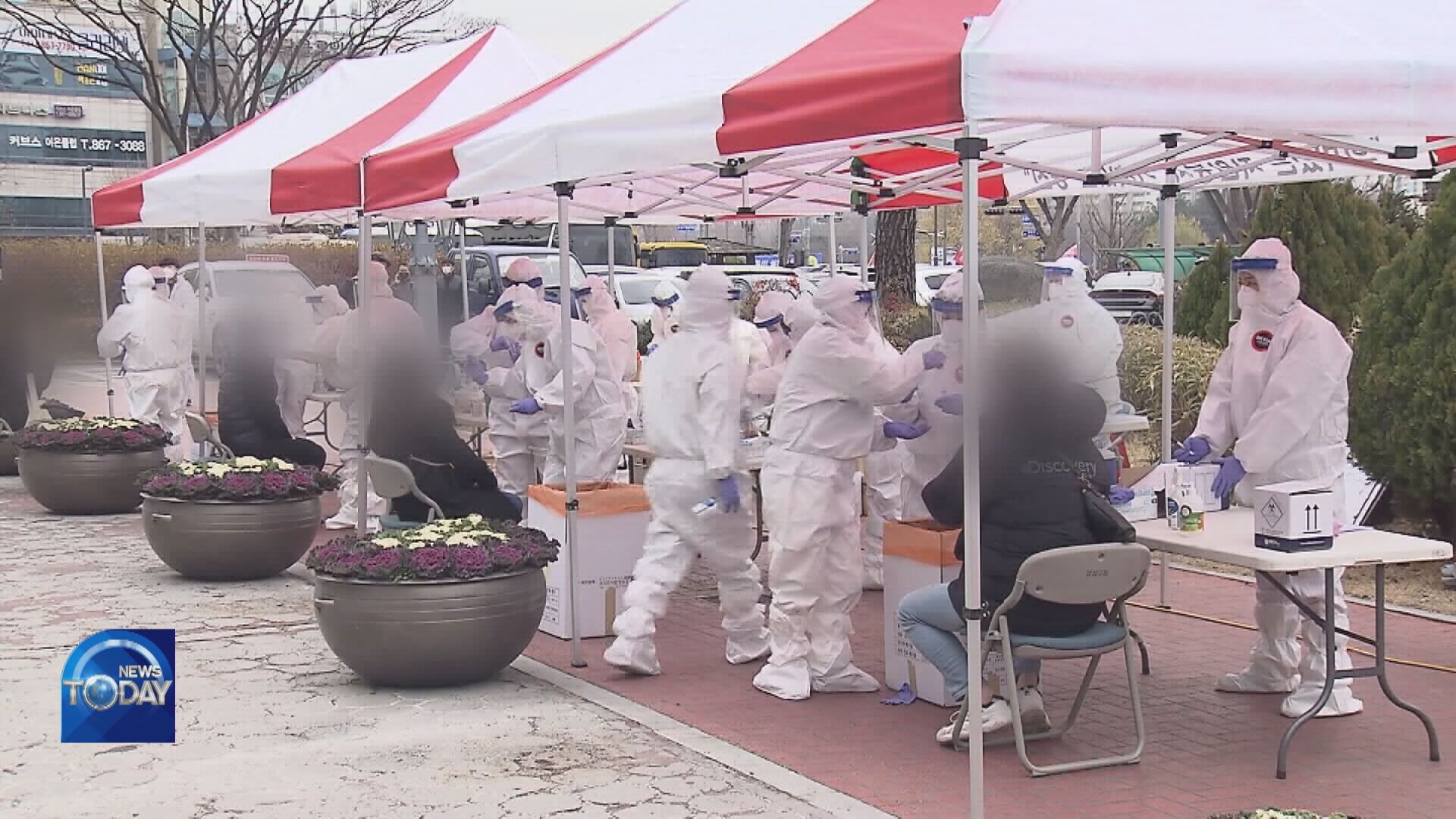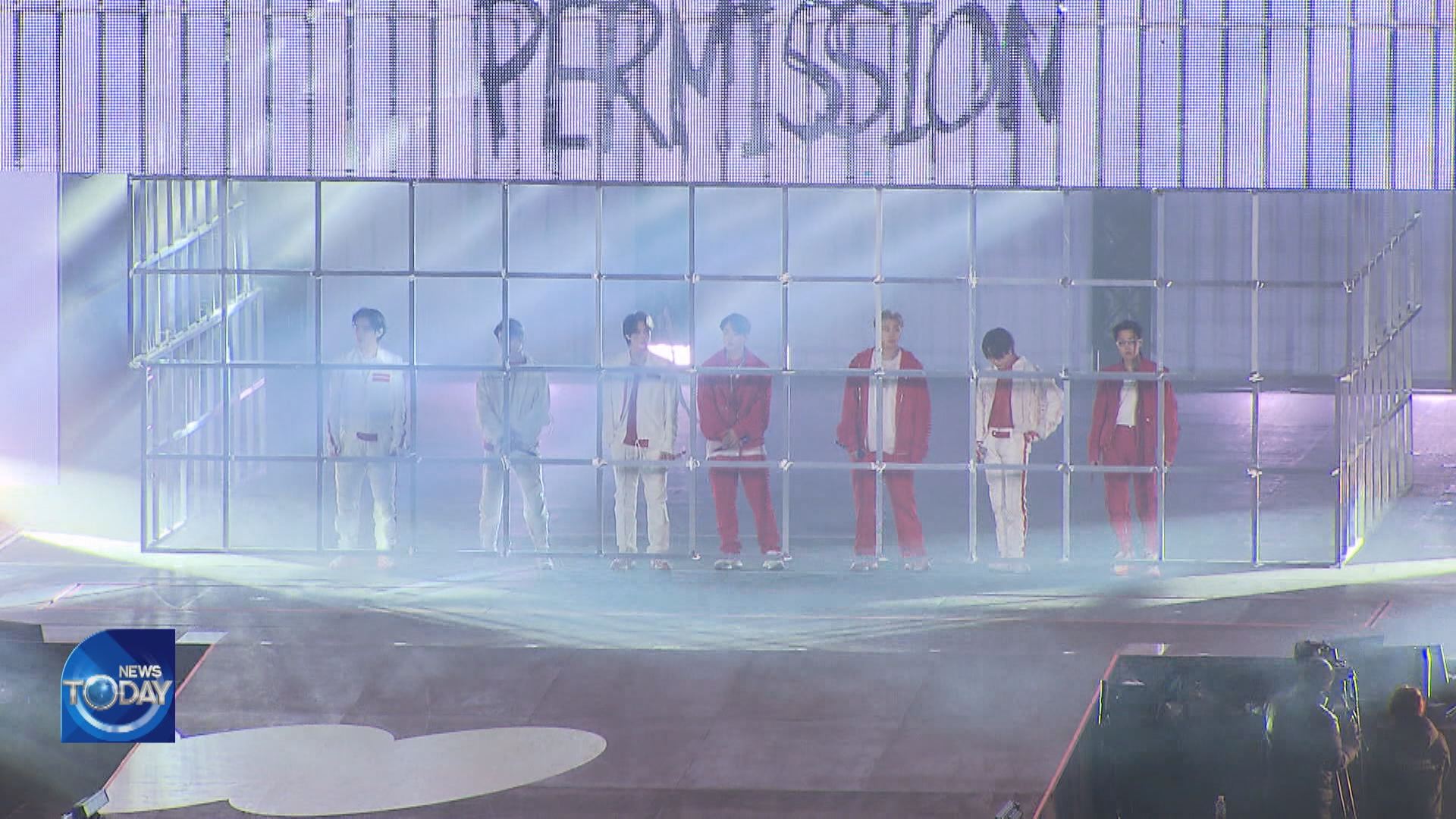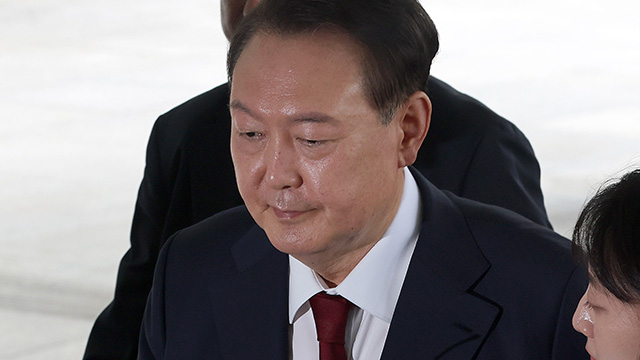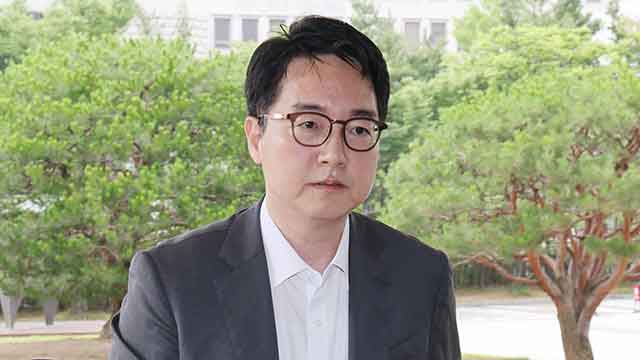GOV'T ON TREATMENT AT REGULAR HOSPITALS
입력 2022.03.11 (15:01)
수정 2022.03.11 (16:46)
읽어주기 기능은 크롬기반의
브라우저에서만 사용하실 수 있습니다.
[Anchor Lead]
Daily COVID-19 cases in Korea have dropped below 300,000 in two days, but health authorities say the Omicron wave has started to peak. Daily cases are expected to stay at the current level for about two weeks before declining. The government says regular hospitals should also provide treatment to COVID-19 patients to help the nation cope with the surge.
[Pkg]
South Korea added 282,987 new COVID-19 cases as of Friday midnight. The number fell below 300,000 for the first time in two days. As the daily tally neared 350,000, the government's projection of the Omicron wave peak, authorities say the outbreak is reaching that point. From the fourth week of this month, cases are projected to decline.
[Soundbite] Lee Sang-won(Central Disease Control HQs) : "The outbreak will likely reach its peak in the next two weeks before declining."
But handling around 300,000 daily cases until the decline could be a challenge. The infected now include young children, frail elderly individuals, pregnant women, dialysis and cancer patients, as well as people with external injuries. There is no choice but to treat COVID-19 patients in regular hospitals with no negative pressure rooms.
[Soundbite] Kwon Deok-cheol(Minister of Health and Welfare) : "We cannot continue treating Omicron patients in negative pressure rooms only. It's also inefficient. Treating them in regular wards is now inevitable."
Seoul National University Hospital has been getting the regular wards of its internal medicine, surgery and pediatric departments to treat coronavirus patients. The hospital believes patients with underlying conditions should receive COVID-19 treatment in the departments where they usually seek medical help. But other hospitals still balk at following suit due to problems in eliminating contact between regular patients and those infected with COVID-19 as well as medical expenses. From March 14, the final diagnosis on COVID-19 will be made using only rapid antigen tests for professional use.
Daily COVID-19 cases in Korea have dropped below 300,000 in two days, but health authorities say the Omicron wave has started to peak. Daily cases are expected to stay at the current level for about two weeks before declining. The government says regular hospitals should also provide treatment to COVID-19 patients to help the nation cope with the surge.
[Pkg]
South Korea added 282,987 new COVID-19 cases as of Friday midnight. The number fell below 300,000 for the first time in two days. As the daily tally neared 350,000, the government's projection of the Omicron wave peak, authorities say the outbreak is reaching that point. From the fourth week of this month, cases are projected to decline.
[Soundbite] Lee Sang-won(Central Disease Control HQs) : "The outbreak will likely reach its peak in the next two weeks before declining."
But handling around 300,000 daily cases until the decline could be a challenge. The infected now include young children, frail elderly individuals, pregnant women, dialysis and cancer patients, as well as people with external injuries. There is no choice but to treat COVID-19 patients in regular hospitals with no negative pressure rooms.
[Soundbite] Kwon Deok-cheol(Minister of Health and Welfare) : "We cannot continue treating Omicron patients in negative pressure rooms only. It's also inefficient. Treating them in regular wards is now inevitable."
Seoul National University Hospital has been getting the regular wards of its internal medicine, surgery and pediatric departments to treat coronavirus patients. The hospital believes patients with underlying conditions should receive COVID-19 treatment in the departments where they usually seek medical help. But other hospitals still balk at following suit due to problems in eliminating contact between regular patients and those infected with COVID-19 as well as medical expenses. From March 14, the final diagnosis on COVID-19 will be made using only rapid antigen tests for professional use.
■ 제보하기
▷ 카카오톡 : 'KBS제보' 검색, 채널 추가
▷ 전화 : 02-781-1234, 4444
▷ 이메일 : kbs1234@kbs.co.kr
▷ 유튜브, 네이버, 카카오에서도 KBS뉴스를 구독해주세요!
- GOV'T ON TREATMENT AT REGULAR HOSPITALS
-
- 입력 2022-03-11 15:01:52
- 수정2022-03-11 16:46:45

[Anchor Lead]
Daily COVID-19 cases in Korea have dropped below 300,000 in two days, but health authorities say the Omicron wave has started to peak. Daily cases are expected to stay at the current level for about two weeks before declining. The government says regular hospitals should also provide treatment to COVID-19 patients to help the nation cope with the surge.
[Pkg]
South Korea added 282,987 new COVID-19 cases as of Friday midnight. The number fell below 300,000 for the first time in two days. As the daily tally neared 350,000, the government's projection of the Omicron wave peak, authorities say the outbreak is reaching that point. From the fourth week of this month, cases are projected to decline.
[Soundbite] Lee Sang-won(Central Disease Control HQs) : "The outbreak will likely reach its peak in the next two weeks before declining."
But handling around 300,000 daily cases until the decline could be a challenge. The infected now include young children, frail elderly individuals, pregnant women, dialysis and cancer patients, as well as people with external injuries. There is no choice but to treat COVID-19 patients in regular hospitals with no negative pressure rooms.
[Soundbite] Kwon Deok-cheol(Minister of Health and Welfare) : "We cannot continue treating Omicron patients in negative pressure rooms only. It's also inefficient. Treating them in regular wards is now inevitable."
Seoul National University Hospital has been getting the regular wards of its internal medicine, surgery and pediatric departments to treat coronavirus patients. The hospital believes patients with underlying conditions should receive COVID-19 treatment in the departments where they usually seek medical help. But other hospitals still balk at following suit due to problems in eliminating contact between regular patients and those infected with COVID-19 as well as medical expenses. From March 14, the final diagnosis on COVID-19 will be made using only rapid antigen tests for professional use.
Daily COVID-19 cases in Korea have dropped below 300,000 in two days, but health authorities say the Omicron wave has started to peak. Daily cases are expected to stay at the current level for about two weeks before declining. The government says regular hospitals should also provide treatment to COVID-19 patients to help the nation cope with the surge.
[Pkg]
South Korea added 282,987 new COVID-19 cases as of Friday midnight. The number fell below 300,000 for the first time in two days. As the daily tally neared 350,000, the government's projection of the Omicron wave peak, authorities say the outbreak is reaching that point. From the fourth week of this month, cases are projected to decline.
[Soundbite] Lee Sang-won(Central Disease Control HQs) : "The outbreak will likely reach its peak in the next two weeks before declining."
But handling around 300,000 daily cases until the decline could be a challenge. The infected now include young children, frail elderly individuals, pregnant women, dialysis and cancer patients, as well as people with external injuries. There is no choice but to treat COVID-19 patients in regular hospitals with no negative pressure rooms.
[Soundbite] Kwon Deok-cheol(Minister of Health and Welfare) : "We cannot continue treating Omicron patients in negative pressure rooms only. It's also inefficient. Treating them in regular wards is now inevitable."
Seoul National University Hospital has been getting the regular wards of its internal medicine, surgery and pediatric departments to treat coronavirus patients. The hospital believes patients with underlying conditions should receive COVID-19 treatment in the departments where they usually seek medical help. But other hospitals still balk at following suit due to problems in eliminating contact between regular patients and those infected with COVID-19 as well as medical expenses. From March 14, the final diagnosis on COVID-19 will be made using only rapid antigen tests for professional use.
이 기사가 좋으셨다면
-
좋아요
0
-
응원해요
0
-
후속 원해요
0

















이 기사에 대한 의견을 남겨주세요.